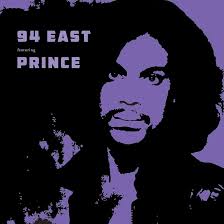The Role of a Prince in Modern Society

Introduction
The role of a prince has evolved dramatically over the centuries, transitioning from a figurehead of power and authority to a more symbolic representative in modern society. In various cultures, the title of ‘prince’ carries with it a blend of tradition, heritage, and expected public service. As the world has become more democratic, the functions and perceptions of princes have transformed, making their relevance increasingly significant to contemporary governance and culture.
Current Events and Developments
Recently, Prince William, the Duke of Cambridge, has taken significant steps to redefine the royal family’s role in tackling pressing social issues. On September 15, 2023, he launched the new “Earthshot Prize” initiative, inviting innovative solutions to combat environmental challenges facing the globe. This initiative underscores the shift away from ceremonial duties towards active engagement in humanitarian and ecological concerns.
In addition, Prince Harry continues to lead discussions on mental health awareness and the impact of media on the lives of public figures. His work, particularly after stepping back from royal duties, reflects a modern prince’s ability to engage in advocacy while navigating personal challenges. These efforts resonate with younger generations, showing how the title of ‘prince’ can embody contemporary values and concerns.
The Evolution of Monarchy
The modernization of the royal family is not without its challenges. As the British monarchy faces scrutiny and calls for greater transparency, the role of princes has also become a topic of debate. A recent survey indicated that while the public holds respect for the institution, there is a growing expectation for princes to remain relevant and agile in addressing contemporary issues such as social justice, environmental sustainability, and mental health.
Moreover, the rise of republican sentiments in some Commonwealth realms has prompted discussions on the position of princes in public life. For instance, Australia and Canada have seen proposals for reevaluating their relationship with the monarchy, highlighting a generational shift in attitudes towards the institution itself.
Conclusion
The significance of a prince in today’s society goes beyond mere titles and lineage. With a focus on social responsibility and public engagement, princes like William and Harry are forging new paths that align with the values of the modern world. As the monarchy continues to adapt, it is clear that in order to maintain relevance, future princes will need to embrace innovative approaches to leadership and public service. Observers of royal affairs will undoubtedly watch these developments closely, as they could dictate the direction of royal influence in the years to come.









